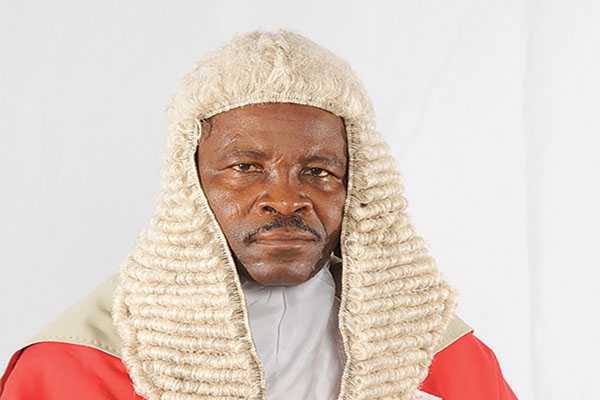What the judges said
Three of the five Court of Appeal judges who presided over a Constitutional case between Omphemetse Motumise and President Ian Khama have indicated that even though they agreed with the judgement delivered by Justice Isaac Lesetedi they differ with him on certain findings especially with interpretation of Section (96) 2 of the Constitution. The section states that the President shall appoint all other judges, in accordance with the recommendation of the Judicial Service Commission.
Justice Gaongalelwe
He said the main issue in the appeal is whether in terms of Section 96 (2) of the Constitution judges of the High Court are practically to be appointed by the President or by Judicial Service Commission (JSC). The judge said the contentions revolve around the proper interpretation of the phrase ‘shall be appointed by the President acting in accordance with the advice of the Judicial Service Commission’.
He said the phrase falls to be interpreted within the context of the whole Constitution and the nature of the regime adopted at the time of acquiring independence.
“My view is that there is no universally accepted meaning attributed to the Phrase ‘acting in accordance with the advice.’ It all depends on the regime of a particular country and the context in light of other provisions of the Constitution. I am in agreement with the conclusion of the lower court that in this matter the phrase simply means the president is not to appoint a person who has not been recommended by JSC. The appeal on this claim must accordingly be dismissed as well.”
Lord Hamilton
“I am in complete agreement with the disposals proposed by Justice Lesetedi and with much of the reasoning which supports the disposals. However, there are some aspects of his reasoning on the interpretation of Section 96 (2) with which I disagree. It is accordingly, appropriate that I express these in a separate judgement.”
Hamilton told the court that his first observation is that he agrees with Justice Lesetedi’s general approach to the interpretation of the Constitution, namely that it being a living and organic instrument, it should be interpreted broadly and generously and in a way which reflects the ideas, values and standards current at the time when it falls to be applied to a particular situation.
He agrees that the court should consider not only the terms of the particular provision under interpretation but also the other provisions of the Constitution which gives it context. Where he disagrees with his brother on this aspect is his (Lesetedi) discounting, as unhelpful to the task before the court, of the events which occurred immediately prior to this Constitution first coming into existence.
He said these events are helpful for the purposes of interpretation. “The critical words for interpretation in Section 96 (2) of the present Constitution are ‘shall be appointed by the President, acting in accordance with the advice of the JSC’. It is clear that the President has a role in such appointments but the question is ‘what role?’ Is his role purely ‘formal’ or does he have some determinative role in such an appointment”.
Lord Abernethy
Lord Abernethy said he also disagrees with some reasoning on the interpretation of Section 96 (2). He explained that it is trite in the interpretation of statutes and other written documents the aim of the court is to identify the intention of the legislature in the case of a statute, of the author or authors in the case of other written documents.
He stated that he agrees with Lord Hamilton for the reason he gives that the events leading to the decision to use the particular words of the provision are helpful for the purpose of interpretation of the words used in the section. He told court that it is in his view that of particular significance that the original proposal from the Government of Bechuanaland at the Bechuanaland Independence Conference was that judges of the High Court should be appointed by JSC.
“In my opinion, on a proper interpretation of Section 96 (2) the president’s power to appoint these judges is no more than a formal power and the substantive power lies with the JSC. The President accordingly acted unconstitutionally in my opinion in declining to appoint Motumise to the office of a Judge of the High Court,” he stated.






